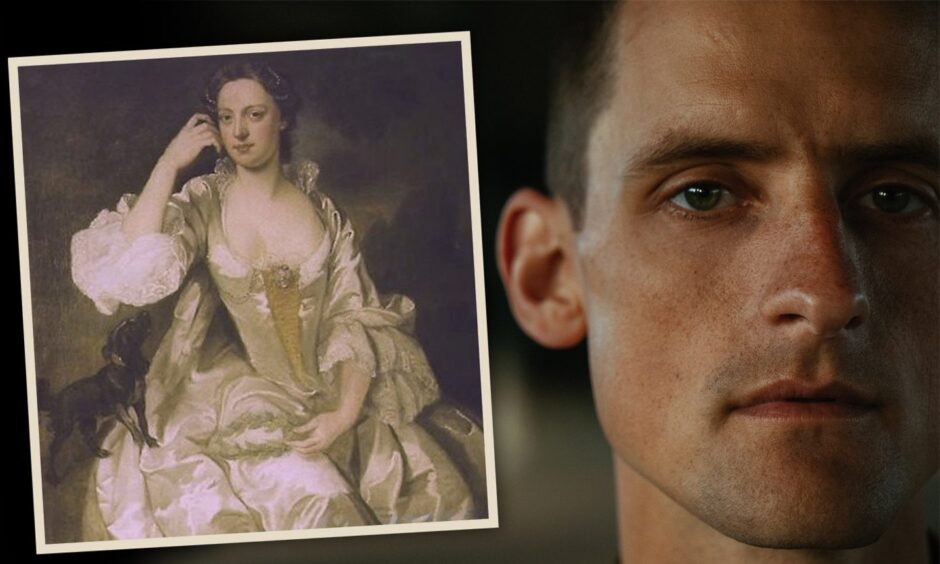
“Fierce, fiercely bright, wild for a dance, and up for a fight with anyone to make Scotland a free country.”
That’s how Elgin man Tommy Antonio sees the protagonist of Rebel, a musical he’s writing to celebrate Colonel Anne Mackintosh, one of the 1745 Jacobite rebellion’s most daring and courageous of supporters.
Selected from more than 200 applicants, he’s already staged a small try-out production of the core idea of Rebel at the Capital Theatre in Edinburgh.
It went down well, so he’s now two-thirds way through the monumental creative alchemy of turning the life of an extraordinary eighteenth century woman into something which will work as a full-length musical to tour the village and town halls of the north of Scotland and beyond.
Roald Dahl and Pinocchio commissions
That’s in between composing the music and lyrics for a major (and top secret) production by the Roald Dahl Story Company, and the music for a new off-the-wall adaptation of Pinocchio, which he describes as ‘Pixar meets Edward Scissorhands’.
But it’s with Rebel and Colonel Anne that Tommy, 36, finds free reign for the ingrained influence of traditional Scottish music coursing through his blood.
He grew up in Elgin ‘right next to the cathedral, as he puts it.
The youngest of five children, he was surrounded by musical siblings and brothers who imbued him with a love of jazz.
Then there were the vivid experiences of the 9-90s ceilidhs at Elgin Town Hall and Tommy’s realisation that jazz and ceilidh music have a lot in common.
After attending Gordonstoun school, Tommy headed for the Guildhall School of Music and Drama in London.
It’s not hard to see why someone with his skill set —composer, author, lyricist and multi-instrumentalist — would be attracted to the story of Lady Anne Mackintosh, daughter of the Farquharsons of Invercauld and married to Angus, chief of the Clan Mackintosh.
Anne takes action
“When Bonnie Prince Charlie lands on Scottish soil armed with nothing but his silks and an Italian accent, Anne takes action,” says Tommy. “Someone’s got to.”
Anne was a committed Jacobite.
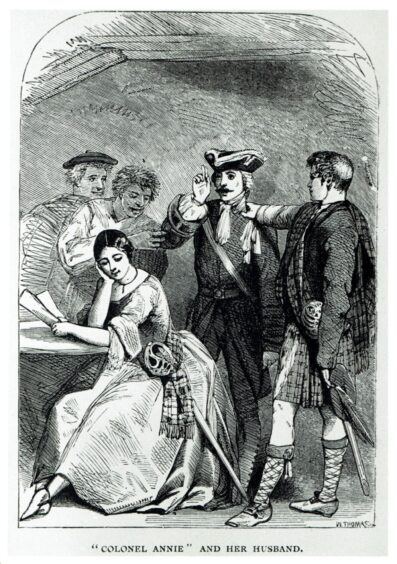
Aged 22, she got on her horse, dressed in tartan and sporting the traditional blue bonnet of the Scottish fighting man; and brandishing a pair of pistols set off to rally Mackintoshes, MacBeans and MacGillvrays from the lands around Moy, near Inverness to the Jacobite cause.
Three hundred men rallied to her flag.
“Then she’s burning through Edinburgh, rousing support among the well-heeled whigs and the poor alike,” says Tommy.
Pots and pans to scare off troops
“She’s hiding the Prince in her castle and scaring off the English army using only pots and pans and bagpipes.”
For this they dubbed her Colonel Anne.
Tommy discovered Colonel Anne through Aberdeenshire author and Jacobite historian Maggie Craig’s seminal book, Damn Rebel Bitches, The Women of the ’45.
He invited Maggie to Edinburgh to see the small-scale try-out of Rebel.
One of the set pieces in Rebel will be the famous scene where Anne hides Prince Charles at Moy Hall, where she was lady of the house.
When word got out that Bonnie Prince Charlie’s nemesis Lord Louden was on his way from Inverness with Government troops to Moy to arrest him, panic initially broke out in the household, with Anne apparently running about ‘like a madwoman in her shift’.
However she soon pulled herself together, as Maggie Craig describes in her book.
Anne and her blacksmith Donald Fraser hatched an audacious plan involving only five men and it worked.
“The five men all fired from their muskets and began running noisily in different directions, calling on imaginary reinforcements to join them. They yelled out war cries of several different clans, hoping to give the impression that a large Jacobite army was present.
“Believing the whole Jacobite army to be between them and their quarry, the government troops retreated rather rapidly to Inverness. Such was the panic that 200 of them deserted the following day, causing so much alarm in the ranks that the officers decided to retreat still further over the Kessock Ferry to wait in Whig-held Ross and Cromarty for the arrival of the Duke of Cumberland.”
Tommy sees this as incident as one of the most significant of the ’45 rebellion.
He said: “Moy is one of Anne’s great acts and by saving the prince then I see that had he been captured then, Culloden would not have occurred.
“Who’s to say what sort of brutality might have taken place, but certainly the bloodshed on that field might not have taken place.”
But it’s complicated.
Tommy goes on: “Anne starts in a whirlwind of infatuation with this new rebellious spirit and movement, then realises that she possibly has blood on her own hands, certainly from those of her clan whom she herself roused into a force with pistols on horseback.
“The musical takes her from a girl into marriage, then into independent autonomous woman with her husband Angus on the other side of the fence.
“But she has to deal with the responsibility of her rebellion just as Bonnie Prince Charlie has to deal with his drive towards rebellion as all these people are slain.”
So how does Tommy even begin to compose the music and lyrics for a musical?
He said: “Two things.
“Leonard Cohen says ‘words and music struggle together’ and I love that phrase.
“Stephen Sondheim, the godfather of musicals, says once you have an idea for a song, sit down at piano and rummage around and find something that feels rhythmically and musically in right ball park.
“Then go to your notepad and start finding a single word or phrase that can be a chorus line.
“That’s a hard thing do do and sometimes I’ve written up to 50 pages of scribbling just finding that one phrase, then going back to the piano and singing it there, then back to the pad, back and forth, so they come together.
“It’s a little tug of war between lyrics and music and they pull each other around; and when it feels like it’s settled you sit with them for a long time.
“If they keep their solidity then you know you’ve got a good catch.”
No wonder it can take up to ten years to write a musical.
Touring production dream
For Tommy the dream is to find funding for a small scale production which could be toured around small venues.
“I dream of it being a show that could go to parts of Scotland that aren’t getting a lot of this sort of theatre, small production, as big as a ceilidh band and a few performers.
“It would just be great to have this story travelling round, being in an environment that invites people into the history but in a way that makes them dance with it.”
Meanwhile Maggie Craig is celebrating Damn Rebel Bitches’ 25th anniversary with a new edition of the book.
She also launched the third in her Storm over Scotland historical fiction series last month.
Storm-Tossed Moon takes the edgy attraction between Redcoat captain Robert Catto and Jacobite Christian Rankeillor to new levels of danger and intrigue.
More like this:


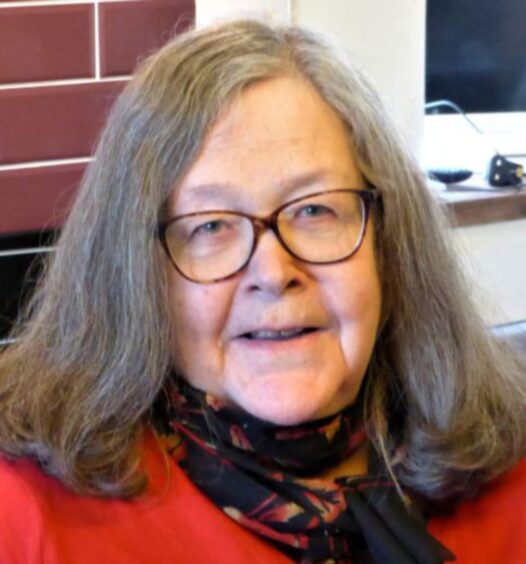
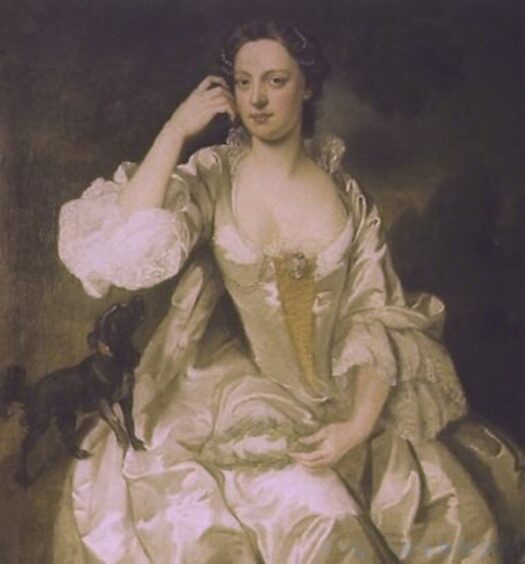
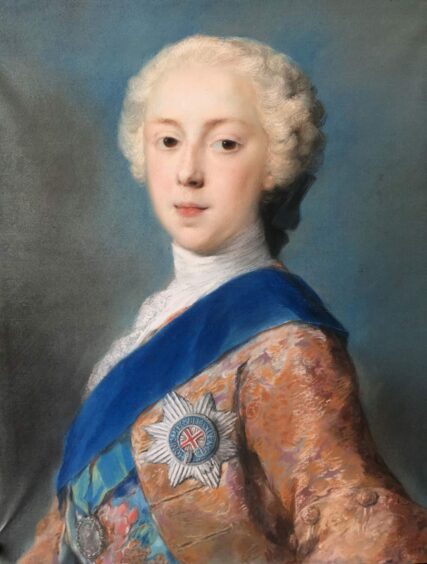
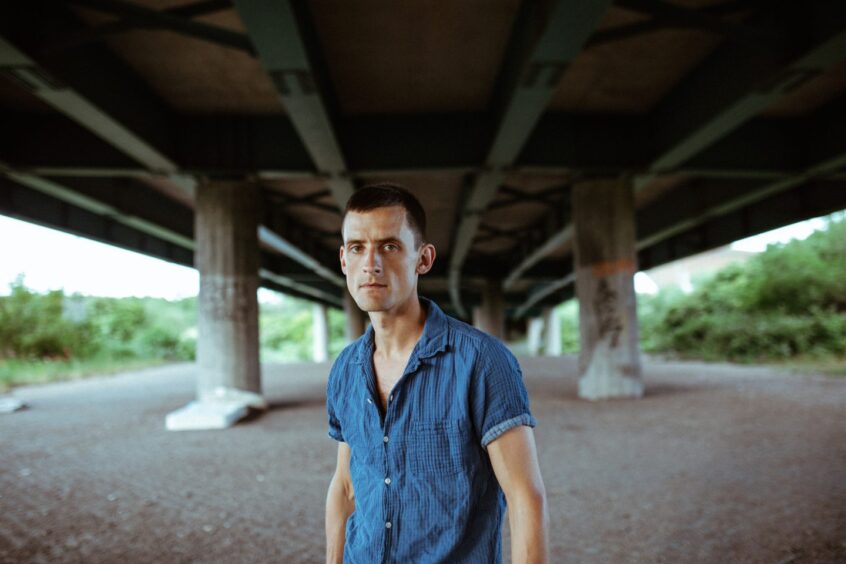
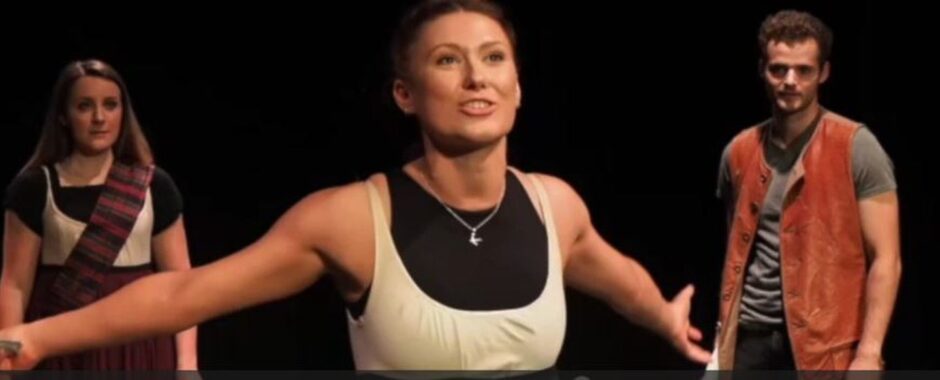
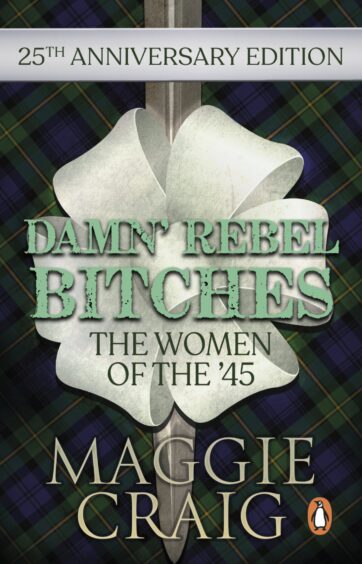
Conversation